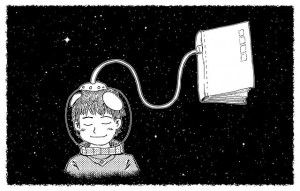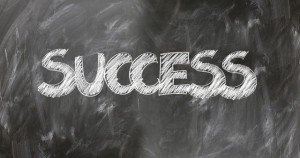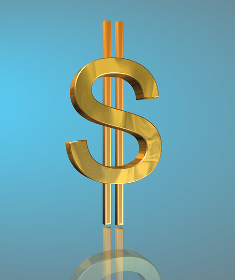As you may already know, I like audio books just as much as the regular old printed versions. And you may also know that I am pretty thrifty (some may some cheap, how dare they) with money. I once had an Audible account, but found that I had credits accumulating (back when accounts were credit-based) and I didn’t have the time to listen with my steady stream of podcasts. I cancelled the Audible account a few years ago to save a few bucks, but still enjoy having an audio book to listen to, especially on dog walks or long car rides.
After s ome research I discovered my local library’s digital audio and e-book program. The county library here is hooked up to two different on-line library sources (Libby and Palace), which means I can check out an audio book, listen to it on my phone, then the book gets removed from my account when it’s due. I don’t have to remember to return anything,and I can borrow countless books; it’s a win-win (the marvels of technology!).
ome research I discovered my local library’s digital audio and e-book program. The county library here is hooked up to two different on-line library sources (Libby and Palace), which means I can check out an audio book, listen to it on my phone, then the book gets removed from my account when it’s due. I don’t have to remember to return anything,and I can borrow countless books; it’s a win-win (the marvels of technology!).
The downside is that I don’t get to listen to any book I want. Extremely popular or new books usually have wait lists and long hold times. There are also quite a few books they don’t carry in their “stacks.” The upside to this, however, is that I’m often forced to find a book on a new topic or a different author that I normally wouldn’t pick out. That being said, I’ve picked a few duds over the years, but all I have to do is press “Return book” and it goes back to its virtual shelf. The vast majority of books I’ve chosen from the “Available Now” column have been really great reads, some I never would have considered checking out.
Here are a few of both non-fiction and fiction that I’ve enjoyed over time and that you might too:
Non-fiction
Think Like a Monk by Jay Shetty. This guy is definitely having a moment right now and good for him! Shetty’s story is interesting because he was a regular old Brit just starting his career but decided that the corporate grind was not for him, so he went to India and became a Buddhist monk. He realized along the way that he could help people more by telling them about his experiences and skills he learned by living a monk’s life. His story and tips are worth the read (or listen).
Educated by Tara Westover. This fascinating account and memoir is about the author growing up in rural Idaho with her doomsday-prepping family of devout Mormons. Her parents did not believe in the establishment or traditional education, but Westover perseveres to educate herself and live beyond the confines of her small world. Her stories are incredible and heart-breaking at times while also causing you to think about the effects our families have on us, long-term, and the choices we must make because of that.
American Prometheus: The Triumph and Tragedy of J. Robert Oppenheimer by Kai Bird and Martin J. Sherwin. We all know that Oppenheimer’s story has been a popular subject lately with the release of the film. I decided to listen to the biography first and then watch the movie (which I still need to do). This audio book is twenty-seven hours long! It felt like a part-time job listening to it, but I finished it and I’m glad I did. Oppenheimer’s life and story is interesting and profound. The quest of science in the larger scheme of war and the fallout from that is serious food for thought. If you’re driving across the country and have twenty-seven hours to kill, this one will keep you occupied.
101 Essays That Will Change the Way You Think by Brianna Weist. Most books that have some type of claim in the title turn me off, but this one ended up being a definite winner. Wiest’s essays are short but succinct, and really do make you change the way you think! Some include choosing purpose over passion, embracing negative thinking, and why so many of us can’t attain happiness. I bought this in paper form after I listened to it so I can re-read an essay from time to time.
Fiction
The Book Woman of Troublesome Creek by Kim Michele Richardson. This historical fiction is set during the 1930’s in Kentucky after the New Deal. Women (who did not have many job prospects at the time) were hired to deliver library books via horseback to rural folks who could not access a library. The story features the blue-skinned people of Kentucky (an actual medical phenomena) and what one woman who is a “Blue” has to endure as a traveling librarian in the mountains of Appalachia with prejudice, fear, and sometimes unexpected kindness.
Sharp Objects by Gillian Flynn. This novel is by the same author of Gone Girl (which I did not read). Thriller/suspense is typically not my preferred genre. The story and plot of Sharp Objects is pretty disturbing and bizarre overall, but if you want a book that will keep the pages turning, or audio rolling, this fits the bill.
The Liar’s Dictionary by Eley Williams. Part of the reason this novel interested me is because the author carries out two stories in different centuries about an infamous dictionary that is central to the plot. It was a weird, funny, and different kind of novel. It also satisfied the word nerd in me.
 Skip good old Amazon and go to your library’s website to see what kind of audio and e-books programs they offer. It opens up a whole new world of print and audio. And the best part, it’s FREE!
Skip good old Amazon and go to your library’s website to see what kind of audio and e-books programs they offer. It opens up a whole new world of print and audio. And the best part, it’s FREE!
 As I start down this path of publishing and marketing a book, one repeated piece of advice I have read is to define success and what success means to me. The argument is that that most people have no real definition of success, so how can they ever reach it. In the world of writing, it is wanting to be a successful author. What does that mean? Getting on the best seller lists? Making a fortune? Turning books into block buster movies? I have yet to define mine, but I highly doubt that it will be any of those milestones. Selling 20,000 copies would be nice, but I don’t know if my dad can afford to buy that many.
As I start down this path of publishing and marketing a book, one repeated piece of advice I have read is to define success and what success means to me. The argument is that that most people have no real definition of success, so how can they ever reach it. In the world of writing, it is wanting to be a successful author. What does that mean? Getting on the best seller lists? Making a fortune? Turning books into block buster movies? I have yet to define mine, but I highly doubt that it will be any of those milestones. Selling 20,000 copies would be nice, but I don’t know if my dad can afford to buy that many.
 e’re lucky and fortunate; and yet, we still want more. And when we get more, well then, we usually still want more. Not often do we see people willing to “give more;” instead it’s to “get more.”
e’re lucky and fortunate; and yet, we still want more. And when we get more, well then, we usually still want more. Not often do we see people willing to “give more;” instead it’s to “get more.”